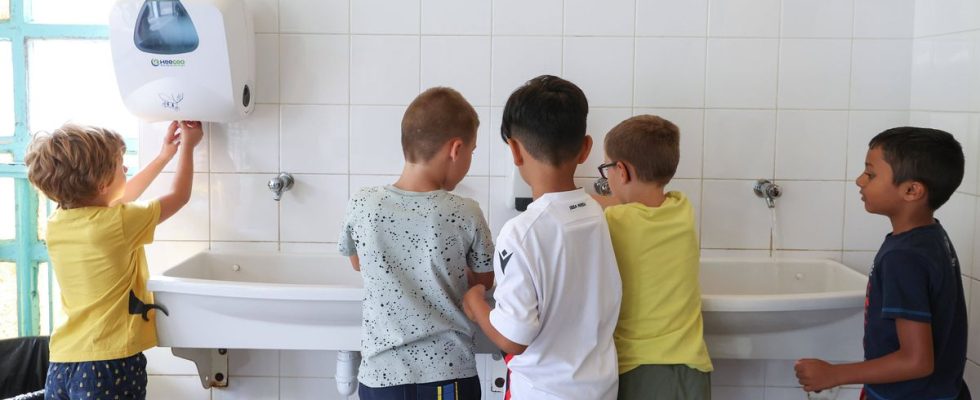The water crisis affects many schools in Guadeloupe. The mayors of the municipalities of Pointe-à-Pitre and Abymes decided on Sunday evening to close their establishments from Monday after issuing an alert regarding the non-drinkable nature of the water, we learned in press releases.
In Abymes, the most populated commune in the overseas department, Mayor Eric Jalton informed his residents of the closure of “all schools in the area and the municipal nursery” on Monday. “The mayor remains awaiting the conclusions of the ARS controls [Agence régionale de santé] for further action in the coming days,” added the elected official. In Pointe-à-Pitre, the economic capital of Guadeloupe, Mayor Harry Durimel has indicated that the schools in the town will be closed “until further notice”.
Possible microbiological contamination
Friday, the single organization for the management of drinking water in the overseas territory, the Joint Syndicate for Water and Sanitation Management of Guadeloupe (SMGEAG), issued an alert on “non-drinkability” water while communicating a letter from the Regional Health Agency (ARS).
This document reports a “suspicion of microbiological contamination of the water in the reservoirs” for these two municipalities after water quality checks following the passage of storm Philippe in the archipelago last week.
Failing service
On Saturday, the Vivre association, committed to defending users’ rights, deplored that “100,000 users are affected by a double shortage of drinking water and yet another pollution by various materials”. The association also recalled the additional costs paid by families obliged to compensate for a “totally defective” public service and the “hundreds of hours of school teaching lost” due to the recurrent closure of establishments faced with shortages or bans on consume water.
Created in 2021 to overcome the difficulties of water management in the territory, the SMGEAG was alarmed at the end of September by the state of water management in the archipelago, which has suffered cuts for decades water and poor sanitation.

